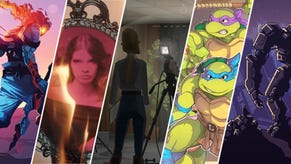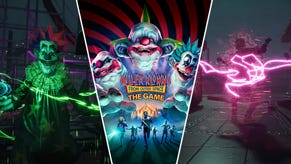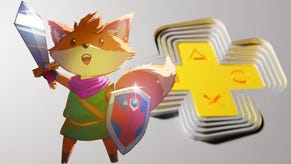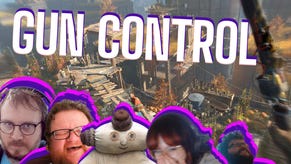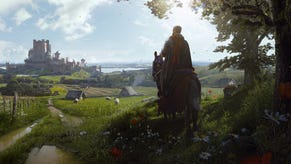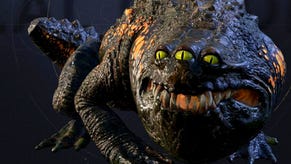Who Makes the Best Mario Games?
The Mario series is the work of more than just one team. But whose version is best?
This article first appeared on USgamer, a partner publication of VG247. Some content, such as this article, has been migrated to VG247 for posterity after USgamer's closure - but it has not been edited or further vetted by the VG247 team.
Yes, yes, Shigeru Miyamoto is Mario's papa. We all know that. But Mario's been in 100-odd video games, which is far more than one man can take credit for... especially when he's also responsible for managing a big chunk of one of the most successful video game companies in the world.
No, Mario's legacy is the work of many people. Entire teams, in fact. And each group's take on Mario has its own idiosyncratic style, even if Miyamoto hovers above it all as the character's benign (albeit occasionally table-flipping) overlord. The upcoming Super Mario 3D World demonstrates this tidily beyond the benefit of a doubt; gamers who initially regarded the game with skepticism have come around to salivating at the prospect of playing it as the indelible fingerprints of Nintendo's EAD Tokyo team have become obvious through the steady onslaught of game trailers.
But of all these different designers and studios, whose take on Mario is best? We present to you the evidence; you make the judgment.
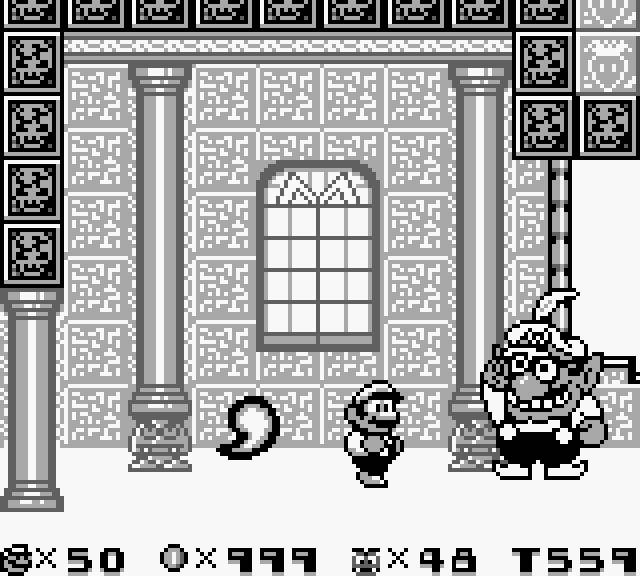
Nintendo SPD
The team: Formerly known as R&D1, SPD is the elder statesman of Nintendo's internal studios. In the beginning, the division was simply known as "Nintendo R&D" before other studios began to peel off from it. You can trace SPD's legacy in a line all the way back to the very first Mario game, Donkey Kong. With the success of the Donkey Kong arcade games, Miyamoto split off to form his own group (Nintendo R&D4), but even then R&D1 continued working on Mario games, most notably the oddball spinoffs and the Game Boy titles (which eventually became Wario Land).
Mario titles created: Donkey Kong, Donkey Kong Jr., Mario Bros., Dr. Mario, the Mario Land series, the Wario Land series, the WarioWare series, Mario Paint.
The case for: This is where Mario started, and the group's latter-day games uphold the franchise's tradition of innovation and creativity perhaps better than any other. Even if they barely have any relationship to Mario, the WarioWare games offer manic fun, and the series they evolved out of -- the Mario Land titles -- paid very little heed to tradition and did their own unique thing.
The case against: SPD hasn't dealt with Mario proper in nearly 20 years. You could argue that they ended up turning Mario Land into the Wario games because their Mario games weren't sufficiently Mario-like.
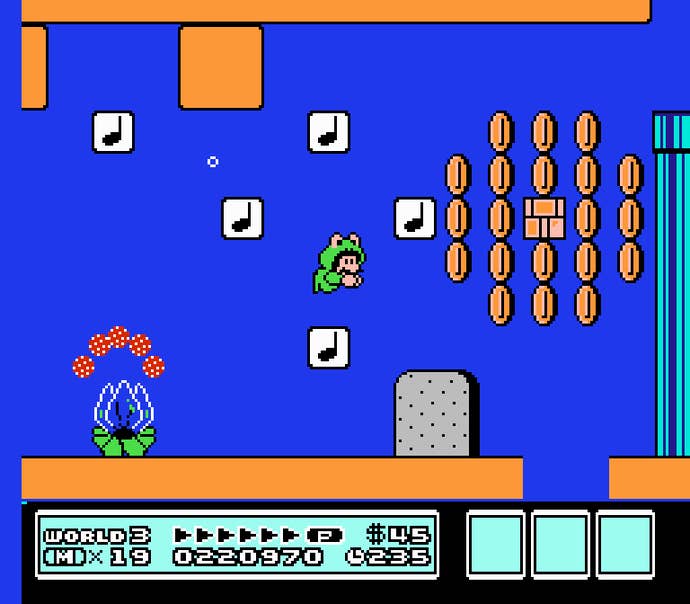
Nintendo EAD1
The team: Formerly known as Nintendo R&D4, Nintendo EAD1 is the group that Miyamoto calls home. In its various incarnations, EAD1 has worked on most of the core Mario games for NES, Super NES, N64, and GameCube, and they also created the Mario Kart series as well.
Mario titles created: Super Mario Bros. 1-3, The Lost Levels, Super Mario World, Yoshi's Island, Yoshi's Story, Super Mario Kart series, Super Mario 64, Super Mario Sunshine.
The case for: The games you think of as the fundamental versions of Mario hail from EAD1, from Super Mario Bros. to Super Mario 64. Everything that defines the character and his world is an invention of EAD1.
The case against: The last Mario game to come from EAD1 was Super Mario Sunshine -- and not only did that happen more than a decade ago, it's also the worst-received core entry in the franchise since Super Mario Bros.: The Lost Levels. Perhaps this studio's glory days with Mario exist in the past.
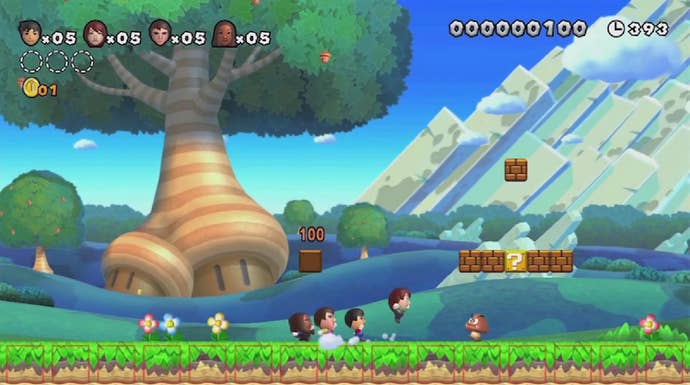
Nintendo EAD4
The team: Formerly known as Nintendo R&D2, the EAD4 group first became involved with the Mario series when it began reworking the NES Mario games for Game Boy Advance. After running out of old games to port, the team began developing original titles in the form of the New Super Mario Bros. series.
Mario titles created: Super Mario Advance series, New Super Mario Bros. series.
The case for: These guys are the breadwinners. Fans may gush more about Super Mario Galaxy, but the New Super Mario titles are the ones that line Nintendo's coffers. They're solid, back-to-basics crowdpleasers.
The case against: New Super Mario tends to be hit-or-miss. While never bad, the portable ones feel safe and uninspired, and the creative level design of the console versions can often be lost amidst the ugly art and boring music they're saddled with. EAD4's Mario is die-cut, factory-made Mario.
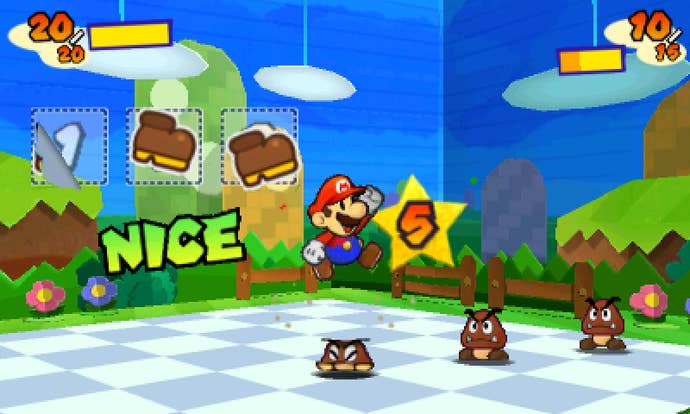
Intelligent Systems
The team: One of the rare internal Nintendo divisions that's never undergone a significant reorganization, Intelligent Systems has traditionally been known as the one Nintendo section that dabbles in role-playing games; they oversee both the Fire Emblem and Advance Wars franchises. Not surprisingly, they're also responsible for the Mario RPG series Paper Mario. However, they've dabbled occasionally in other Mario-related ventures, including collaborating on WarioWare games and taking the lead on Mario Kart: Super Circuit for Game Boy Advance.
Mario titles created: Mario Kart: Super Circuit, Paper Mario series, WarioWare.
The case for: By placing Mario into story-heavy role-playing adventures, Intelligent System's games have done more to actually define the world and characters around the silent hero than any other.
The case against: The past two Paper Mario titles haven't been received with universal adoration. And while the writing can be fun, Paper Mario tends to drag, and its platforming stinks.
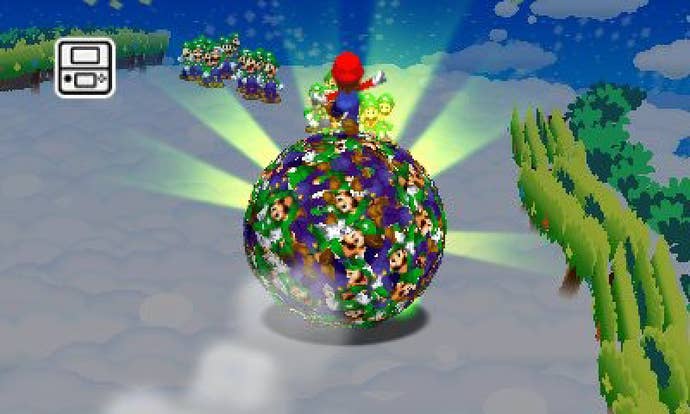
Alpha Dream
The team: Technically a third party, Alpha Dream has since its inception worked exclusively on Nintendo franchises for Nintendo platforms. Specifically, it's taken the lead on Mario's other RPG series, Mario & Luigi -- perhaps not surprising, given the presence of former Squaresoft developers worked on the original Super Mario RPG.
Mario titles created: Mario & Luigi series.
The case for: Its lighter, less snarky take on the Mario RPG concept makes Mario & Luigi feel more upbeat and, well, Mario-esque than Paper Mario.
The case against: Mario & Luigi games tend to feel much more childlike than just about any other titles in the Mario franchise. And Alpha Dream hasn't done any work with Mario outside of those four adventures.
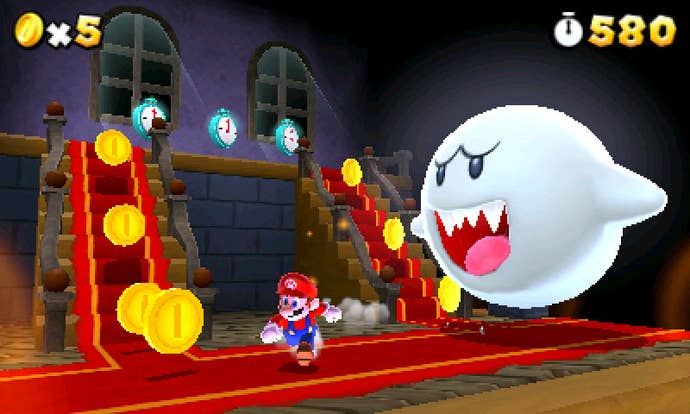
Nintendo EAD Tokyo
The team: A recent addition to Nintendo's roster of studios, EAD Tokyo was created to attract talented Tokyo-based developers who didn't want to relocate to work in Nintendo's Kyoto offices. Key personnel includes Yoshiaki Koizumi, who played a key role in Yoshi's Island and Super Mario 64. After proving its mettle with Donkey Kong: Jungle Beat, EAD Tokyo then moved on to the Mario Galaxy games and the more recent 3D Land and 3D World.
Mario titles created: Super Mario Galaxy series, Super Mario 3D Land, Super Mario 3D World.
The case for: The soul of modern Mario creativity lives on in EAD Tokyo's games. Super Mario Galaxy revitalized the series and gave many doubters faith in the Nintendo Wii, and Super Mario 3D World looks to do likewise for the Wii U.
The case against: Super Mario Galaxy 2 and Super Mario 3D Land were both great, but neither hit the stratospheric heights achieved by the original Galaxy. 3D World will be EAD Tokyo's test: Do they deserve to be Mario's stewards, or did they use up their best ideas in their first outing?
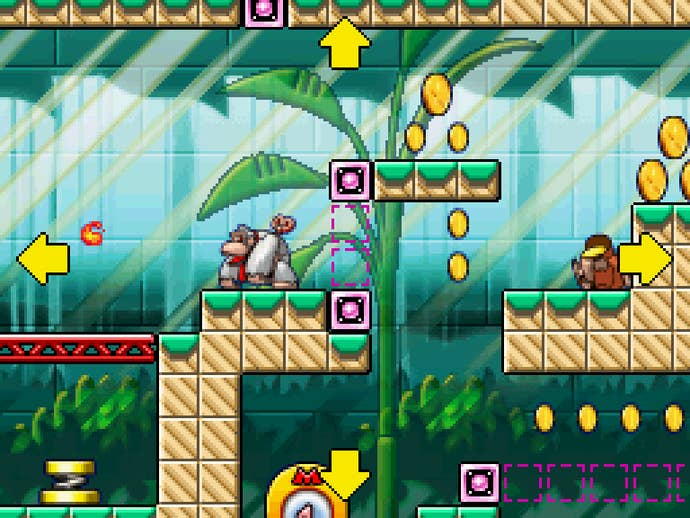
Nintendo Software Technology
The team: A rare example of Americans being allowed to work on core Nintendo franchises, the folks at NST have close ties to the Digipen Institute. To date, their Mario involvement has consisted of the Mario Vs. Donkey games.
Mario titles created: Mario Vs. Donkey Kong series.
The case for: The Mario Vs. Donkey Kong games are, in a way, the true successors of the original Donkey Kong. They evolved out of Donkey Kong '94, a brilliant reinvention of the old arcade game, and they keep the methodical, single-screen challenge of the franchise's origins alive.
The case against: NST has only ever worked on Mario Vs. Donkey Kong, a series derived from EAD's earlier work.

